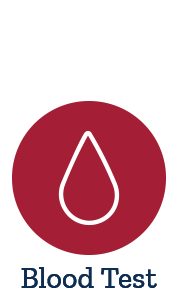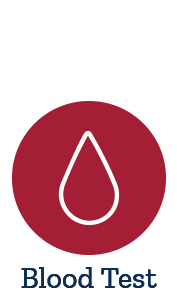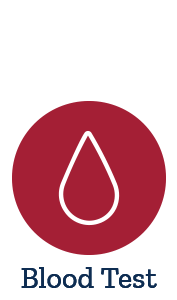Cancer is the second leading cause of death in the U.S.
Cancer kills over a half a million Americans every year—second only to heart disease. But cancer can be detected through antigens and other biomarkers in your blood. Your family history of breast cancer, pancreatic cancer, colon cancer, ovarian cancer and even lung cancer can determine whether you’re at risk of developing cancer. Worried about cancer? Get a lab test to detect cancer today.
What do lab tests for cancer look for?
- Test for cancer biomarkers (hormones, antigens) in your blood
- Measure antigens for breast cancer, ovarian cancer and more
- Assess genetic risk factors for cancer via saliva (cheek) swab
- Assess treatment effectiveness and cancer progression
- Tumor markers for pancreatic cancer, prostate cancer and beyond
- Blood testing, fecal testing and non-invasive saliva testing
Lab Testing for Cancer
Whether you’re at risk or have already been diagnosed, cancer antigen, hormone markers and tumor markers are a good way to assess need and monitor treatment for cancer. Genetic cancer testing and fecal (occult blood) testing can assess your risk.
Need help selecting what's best for you?
Essentials
Quiz
Essentials
Quiz
Answer a few questions to get custom nutrient recommendations
Life Extension - Why We Do It?
The Best Supplements Science Can Offer
When putting something in your body, you should be confident that you’re getting the nutritional benefits your body deserves. We've been delivering high-quality, science-backed supplements for more than 40 years.
What Matters to You, Matters to Us
We're committed to empowering you to live a healthier life. Whether it’s finding sustainable partners for our ingredients or funding the latest anti-aging research, we're all about your health & wellness.
Highly Recommended
98% of our customers recommend us to family and friends. We're very proud of that because our loved ones matter to us—and we're willing to bet you feel the same way.
Product Transparency
40 years of research dedicated to bringing you premium, scientifically-validated formulations.






